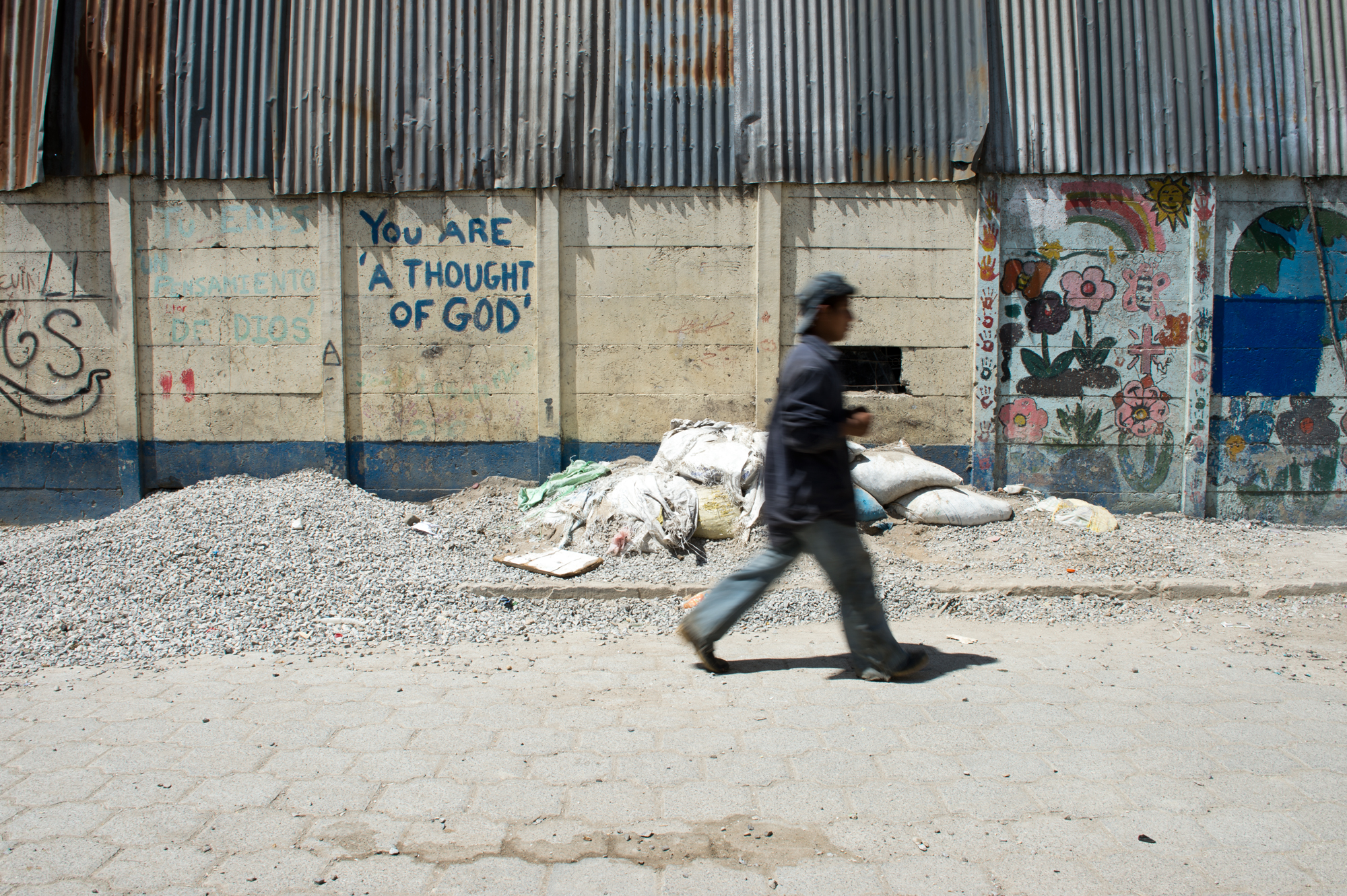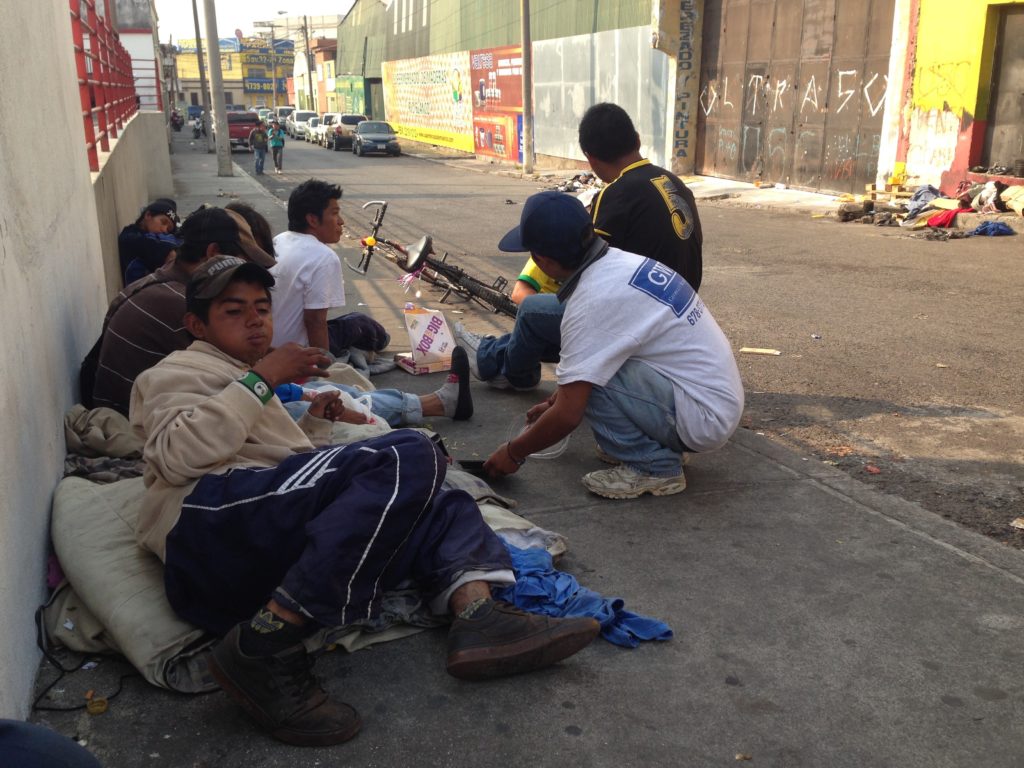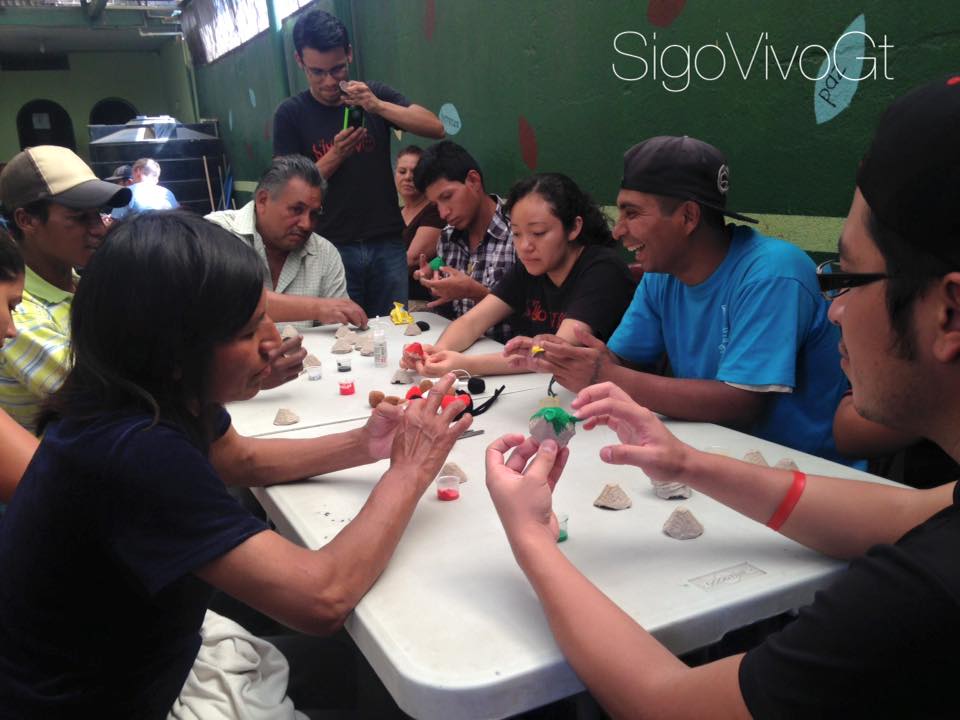
Ministry Updates
What Do You Really Think of Us?
August 15, 2016
by AJ Westendorp

“What do you really think of us, drug-addicts and homeless people?” Angel asked me. I paused.
He, like many of the “jovenes de la calle“ (street kids), has been living in the streets since he was a kid.
Now, at 22, he’s seen it all, lived it all. He’s used drugs as a regular escape. He’s found ways to survive with barely any income. He’s been pushed out of churches and restaurants because he’s asking people for money, because he’s high or just because he doesn’t look presentable. He’s seen ministries come and go, do their good deed, pass out a meal and some clothes, have a conversation and preach the Bible to him. He knows the verses as well as I do.
He’s seen people assaulted in the street. He’s been assaulted in the street. He’s gone without food, without bathing, without shelter. He’s slept on cardboard, plastic or the hard-packed earth. This is Angel’s normal.
A “Homeless,” Homeless Ministry

When a seminary student started building relationships with the jovenes de la calle, he couldn’t ignore the needs he encountered. Photo courtesy of Alaina Westendorp
Sigo Vivo (I’m Still Alive) started in 2013 when a student at SETECA, a seminary in Guatemala City, started building relationships with folks like Angel. They started going to church together, but the jovenes de la calle were often smelly, high and so disruptive that the church eventually asked them not to attend on Sundays.
This prompted Pastor Rudy Hernandez and his family to officially start Sigo Vivo on Saturdays. It was a group just for jovenes de la calle, with a hot meal, a place to shower, an activity to engage the group with the Bible and a group of volunteers to share life with.
Sigo Vivo built relationships with the homeless, pointing them toward Christ and a life of freedom from drugs and the other woes in the street. They connected those who wanted leave the street with rehab houses to get them on the road to recovery.
In 2015, lightning struck Sigo Vivo again. The church elders (against the wishes of many in the church body) asked Pastor Rudy to leave because they didn’t like the Sigo Vivo folks bringing their mess, physical and spiritual, into the space of the church. Sigo Vivo was now a “homeless” homeless ministry, but it carried on, true to the ministry’s name.
For three months, the group met in a small park in front of the National Cemetery, meanwhile looking for a meeting space that could give shelter as the rainy season approached. Rudy was (and still is) without a salary, but he was (and still is) confident in God’s call on his life to preach Christ and preach freedom to those held captive by addiction and by systems of poverty.
Broken Systems, Unbroken Hope
My wife, Alaina, and I started volunteering at Sigo Vivo at the end of 2015. It was (and still is) really hard to be there sometimes. It’s difficult to understand street Spanish, when our Spanish still isn’t the strongest. But it teaches us to listen intently. It teaches us to rely on God, not on our own words. It allows us to learn from them.
It’s hard to see some of our friends walk away after Sigo Vivo and back to their old escapes. It’s hard to see them enabled to live in addiction through handouts from well-meaning, misguided ministries. It’s hard when they hurt and hunger. It’s hard to look at the potential in our friends in the street and then recognize how long the road is to any kind of stability, given the systems in Guatemala.
After rehab, where do they go? How will they receive and pay for education? Who will support them? If they finish their education, will anybody hire them? Will they be able to resist relapse?
Sigo Vivo and some fellow ministry dreamers have hopes for pathways through these deserts — halfway houses and job training — but those things require funds, staff and available property and materials.
It’s hard to look at myself and realize how much more I’ve been given than our friends in the street — opportunities, money, privilege, family, friends, education, resources. It makes honest conversation a challenge as our realities, our normals, are so different.
Despite these challenges, I remember that Jesus said people like the jovenes de la calle would receive the kingdom of heaven. The Bible says God has chosen those who are poor in the eyes of the world to be rich in faith and to inherit the kingdom. So I have to believe that as God’s already done the heavy lifting, I ought to be around to see the metaphorical clay pots take shape.
However “hard” it may be, however incapable I feel to help, however backward the systems, it gives God more to be glorified for in the end. When someone is awarded their official Sigo Vivo T-shirt for going one year without drugs, it warms us all up and keeps us believing.
Learning How to Be a Family
So, Angel asked me, “What do you really think of us, drug-addicts and homeless people?” I paused. I was glad he felt like he could ask me this question. It felt like we were finally seeing eye-to-eye.
I said in broken Spanish, “It makes me sad. I really believe you all have a lot of potential and a lot of faith, but you’re stuck because of where you were born, who raised you or some decisions that you or someone else made. I want desperately for the gospel and for society to work for you. It’s frustrating when they don’t. Either way, I like being around you guys, for the most part, and I think I have a lot to learn from you.”

Through consistency and intentional conversations, the volunteers and youth at Sigo Vivo are building community. Photo courtesy of Sigo Vivo
Sigo Vivo now has a building to meet in which we can eat around a table together, do crafts, explore a Bible study and share life. It’s not a perfect ministry model, and it can feel pretty disorganized sometimes, but we’re learning how to be a family. On a good day, you might even catch us grooving to a catchy song, learning a choreographed dance (or resorting to circle dance battles).
And on June 5, 2016, Iglesia Sigo Vivo was founded, starting its own Sunday church services — in that same small park in front of a cemetery.
Related articles


